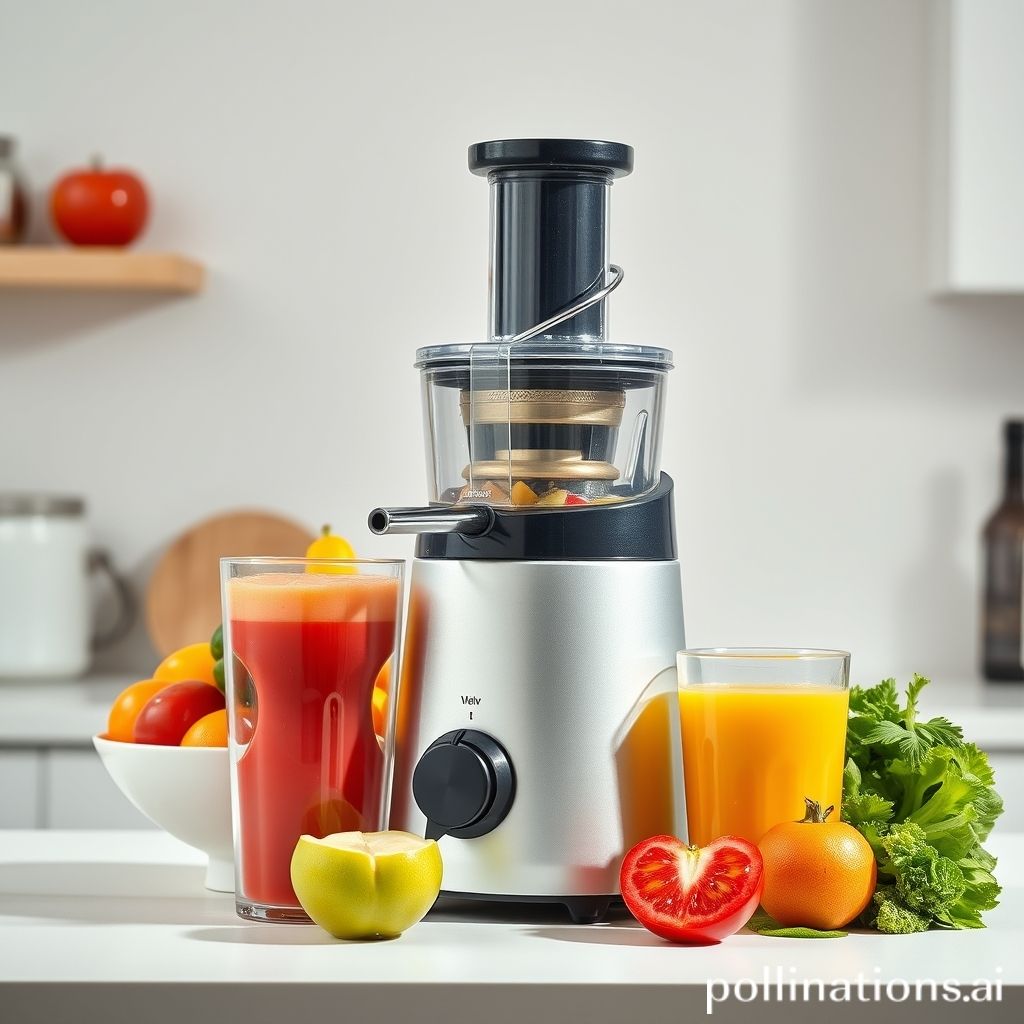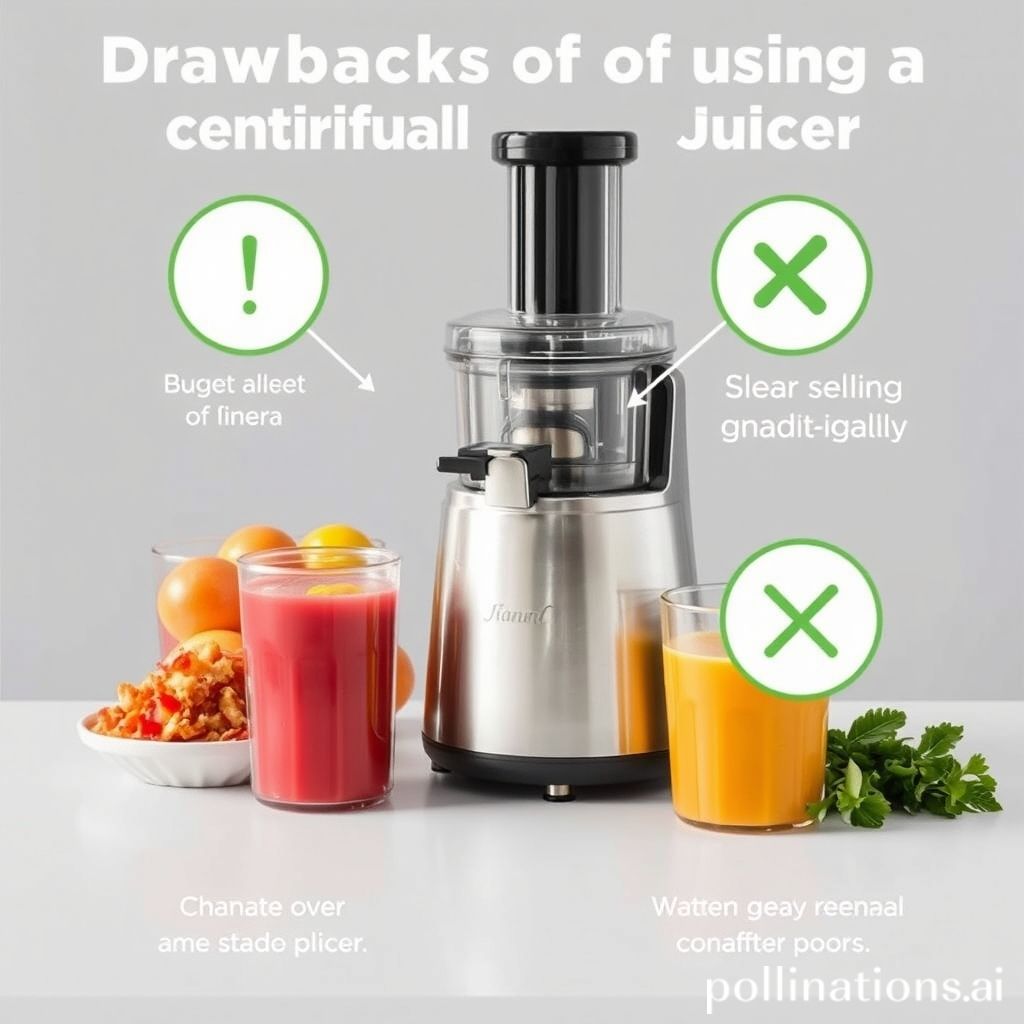What Is A Centrifugal Juicer?
[su_note note_color=”#fb8e00″ text_color=”#000000″ radius=”12″]
When we talk about centrifugal juicers, we’re referring to a specific type of juicer that utilizes centrifugal force to extract juice from various fruits and vegetables. People are often curious about the features, advantages, and disadvantages of these juicers, as well as how they measure up against other types of juicers.
Researchers have even explored the topic, aiming to determine whether using a centrifugal juicer is the safest and healthiest approach to juicing. If you’re ready to dive into the world of centrifugal juicers, we’ve got you covered. In this article, we’ll provide you with all the essential information you need to know.
[su_box title=”
[/su_box]

Features of Centrifugal Juicers
1. High-Speed Motor
One of the main features of centrifugal juicers is their high-speed motor. These juicers have a motor that operates at a rapid rate, typically between 6,000 and 14,000 revolutions per minute (RPM). This high-speed rotation allows the juicer to quickly extract juice from fruits and vegetables, making the juicing process fast and efficient. The powerful motor ensures that even hard produce, such as carrots or apples, can be juiced with ease.
2. Wide Feed Chute
Centrifugal juicers are equipped with a wide feed chute, which is another notable feature. The feed chute is the opening through which you insert the produce into the juicer. With a wider feed chute, you can save time by feeding larger chunks of fruits and vegetables into the juicer, without the need for extensive chopping or preparation.
3. Pulp Ejection System
Another feature of centrifugal juicers is their pulp ejection system. As the juicer extracts the juice from the produce, it separates the pulp and deposits it into a separate container. This allows for continuous juicing without the need to stop and empty the pulp container frequently. The pulp ejection system also makes the juicer easy to clean.
4. Easy to Clean
Centrifugal juicers are known for their easy cleaning process, making them a popular choice among busy individuals. Many models come with dishwasher-safe components, making it convenient to clean the juicer after use. Additionally, the pulp ejection system and removable parts simplify the cleaning process, ensuring that there are no hard-to-reach areas that can harbor residue.
[su_highlight background=”#f6b40f”]Expert Tips: Choose a centrifugal juicer with a high-speed motor, wide feed chute, pulp ejection system, and easy-to-clean features.[/su_highlight]
Advantages of Utilizing a Centrifugal Juicer
1. Fast and Effective Juicing
A centrifugal juicer is renowned for its ability to juice quickly. The robust motor and spinning blades generate centrifugal force, which expeditiously extracts juice from fruits and vegetables. This means you can savor a revitalizing glass of juice in no time.
2. Appropriate for a Wide Range of Fruits and Vegetables
Whether you desire to juice firm fruits like apples and carrots or tender fruits like berries and tomatoes, a centrifugal juicer can handle them all. Its sharp blades and high-speed spinning action can efficiently extract juice from a diverse array of produce.
3. Economical Price Range
Centrifugal juicers are often more budget-friendly compared to other juicer types. They offer an affordable entry point into the world of juicing, making it accessible to those on a tight budget. Despite their lower price, they still deliver satisfactory juicing results.
4. Convenient for Novices
If you are new to juicing, a centrifugal juicer is an excellent choice. Its uncomplicated design and user-friendly features make it easy to operate and clean. You don’t need to spend a significant amount of time figuring out how to use it, allowing you to start enjoying the benefits of juicing right away.
| Advantages of Utilizing a Centrifugal Juicer: |
|---|
| 1. Fast and effective juicing |
| 2. Appropriate for a wide range of fruits and vegetables |
| 3. Economical price range |
| 4. Convenient for novices |
Disadvantages of using a Centrifugal Juicer
Although centrifugal juicers are convenient and fast, there are several drawbacks to consider before purchasing one. Understanding these limitations will help you make an informed decision about whether a centrifugal juicer is right for your needs.
1. Oxidation of juice
Centrifugal juicers operate at high speeds, which can cause the juice to oxidize. Oxidation happens when the juicer’s fast-spinning blades introduce air into the juice, leading to a loss of nutritional value and freshness. This can result in a shorter shelf life for the juice and a potential decrease in important enzymes and antioxidants.
2. Noisy operation
One drawback of using a centrifugal juicer is the noise it generates. The high-speed spinning of the blades creates a loud and disruptive noise, which may not be ideal for those who prefer a quiet environment. If noise is a concern for you, it may be worth considering alternative juicer options.
3. Lower juice yield
Compared to other types of juicers, centrifugal juicers tend to have a lower juice yield. This means that you may need to use a larger quantity of fruits and vegetables to extract the same amount of juice. Additionally, the pulp produced by a centrifugal juicer may still contain some juice, resulting in a less efficient extraction process.
4. Not suitable for leafy greens
Centrifugal juicers are not the best choice for juicing leafy greens such as spinach, kale, or wheatgrass. The high-speed spinning action of the juicer may struggle to effectively extract juice from these types of produce, resulting in a lower juice yield and potentially leaving behind chunks of unprocessed greens. If your main intention is to juice leafy greens, you should consider a masticating or triturating juicer instead.

Comparison with Other Types of Juicers
Masticating Juicers
Masticating juicers are popular for their slow and cold-press extraction method. They operate at a slower speed compared to centrifugal juicers and use a pressing mechanism to extract juice. The slower speed helps retain more nutrients and enzymes in the juice, making it healthier and more nutritious. Additionally, masticating juicers have a higher juice yield as they can extract more juice from the same amount of fruits and vegetables compared to centrifugal juicers.
Citrus Juicers
Citrus juicers are specifically designed for extracting juice from citrus fruits such as oranges, lemons, and grapefruits. They are easy to use and clean, making them a convenient choice for those who frequently consume citrus juices. These juicers typically have a simple design with a cone-shaped reamer used to extract juice from the citrus fruit. Although, it’s important to note that citrus juicers have limited versatility as they are not suitable for juicing other types of fruits or vegetables.
[su_note note_color=”#ea2e0c” text_color=”#ffffff” radius=”8″]Extra Tips: Consider a masticating juicer for nutrient-rich juice or a citrus juicer for easy extraction of citrus fruits.[/su_note]
Centrifugal Juicers vs. Masticating Juicers
1. Speed and Extraction Method
One of the main differences between centrifugal juicers and masticating juicers is their speed and extraction method. Centrifugal juicers work at high speeds, typically ranging from 6,000 to 14,000 RPM (revolutions per minute). They use centrifugal force to separate the juice from the pulp. The juice is extracted through a mesh filter, Meanwhile the pulp is ejected into a separate container. This high-speed process allows for quick juicing, making it ideal for those with limited time on their hands.
Masticating juicers, In contradistinction, operate at much slower speeds, usually around 80 RPM. They use a chewing or grinding motion to slowly extract the juice from fruits and vegetables. This slow and gentle process helps preserve the nutrients and enzymes in the juice, resulting in a higher quality and more nutrient-rich juice.
2. Nutrient Retention and Juice Quality
In the realm of preserving nutrients and ensuring high juice quality, masticating juicers have the advantage. The slow and gentle extraction process of masticating juicers helps minimize heat and oxidation, which can degrade the nutrients in the juice. As a result, masticating juicers produce juice that is richer in vitamins, minerals, antioxidants, and enzymes that aid in digestion and overall health. Centrifugal juicers, In contradistinction, generate more heat and expose the juice to more oxygen, leading to some nutrient loss.
3. Noise Level and Convenience
Centrifugal juicers are generally noisier compared to masticating juicers. The high-speed spinning of the blades in centrifugal juicers can create a loud noise, which may be a concern for those who prefer a quieter juicing experience. Masticating juicers, with their slow and quiet operation, are more suitable for those who value a noise-free environment.
In terms of convenience, centrifugal juicers are generally easier to clean and assemble. The larger feed chute in centrifugal juicers allows for quick and effortless juicing, as there is no need to pre-cut most fruits and vegetables. In contradistinction, masticating juicers have narrower feed chutes and require more preparation time due to their slower extraction process.
4. Price Range and Affordability
Centrifugal juicers are typically more affordable compared to masticating juicers. Their simpler design and faster operation make them a budget-friendly option for those new to juicing or on a limited budget. Masticating juicers, In contradistinction, tend to be pricier due to their advanced technology and slower extraction process. They are often preferred by dedicated juicers who prioritize nutrient retention and juice quality.
Conclusion
Centrifugal juicers are popular among individuals seeking a quick and efficient way to extract juice from fruits and vegetables. These juicers utilize centrifugal force to separate the juice from the pulp, resulting in a refreshing and nutritious beverage.
With their high-speed performance, centrifugal juicers are capable of processing large quantities of produce in a short amount of time. Notwithstanding, it is important to consider factors such as noise level, juice quality, and ease of cleaning when choosing a juicer. By Apprehending the features and considering personal preferences, individuals can select a centrifugal juicer that best suits their needs.
Faq about Centrifugal Juicers:
FAQ 1: Can I use a centrifugal juicer for leafy greens?
Yes, you can use a centrifugal juicer for leafy greens such as kale, spinach, and lettuce. Nonetheless, it is important to note that centrifugal juicers are not as efficient in extracting juice from leafy greens compared to masticating juicers. You may need to pass the greens through the juicer multiple times to get a higher yield.
FAQ 2: How long does it take to juice with a centrifugal juicer?
Juicing time with a centrifugal juicer can vary depending on the quantity and type of fruits or vegetables you are juicing. On average, it takes about 1-2 minutes to juice a standard-sized apple or orange. Nonetheless, harder produce like carrots may take slightly longer. It is worth noting that centrifugal juicers are generally faster than masticating juicers.
FAQ 3: Is the juice from a centrifugal juicer as nutritious as other types of juicers?
The juice extracted from a centrifugal juicer is still nutritious and packed with vitamins and minerals. Nonetheless, due to the high-speed spinning blade, there is a possibility of some heat and oxidation, which may slightly reduce the overall nutritional value compared to slower juicers like masticating juicers. Nevertheless, the difference in nutritional value is not significant.
FAQ 4: Can I juice frozen fruits and vegetables with a centrifugal juicer?
Centrifugal juicers are not designed to handle frozen fruits or vegetables. It is recommended to thaw them before juicing. Trying to juice frozen produce can potentially damage the juicer’s blades and motor.
FAQ 5: How do I clean a centrifugal juicer?
Cleaning a centrifugal juicer is relatively easy. After juicing, disassemble the juicer and rinse the removable parts under running water. Use a brush or sponge to remove any pulp or residue. Some parts may be dishwasher safe, but it is always best to refer to the manufacturer’s instructions for specific cleaning guidelines.
Read Similar Post:
1. Create Homemade Almond Milk: Step-by-Step Guide with Omega Juicer
2. Why Juicers Make Noise: Revealing the Surprising Reason Behind the Loudness
